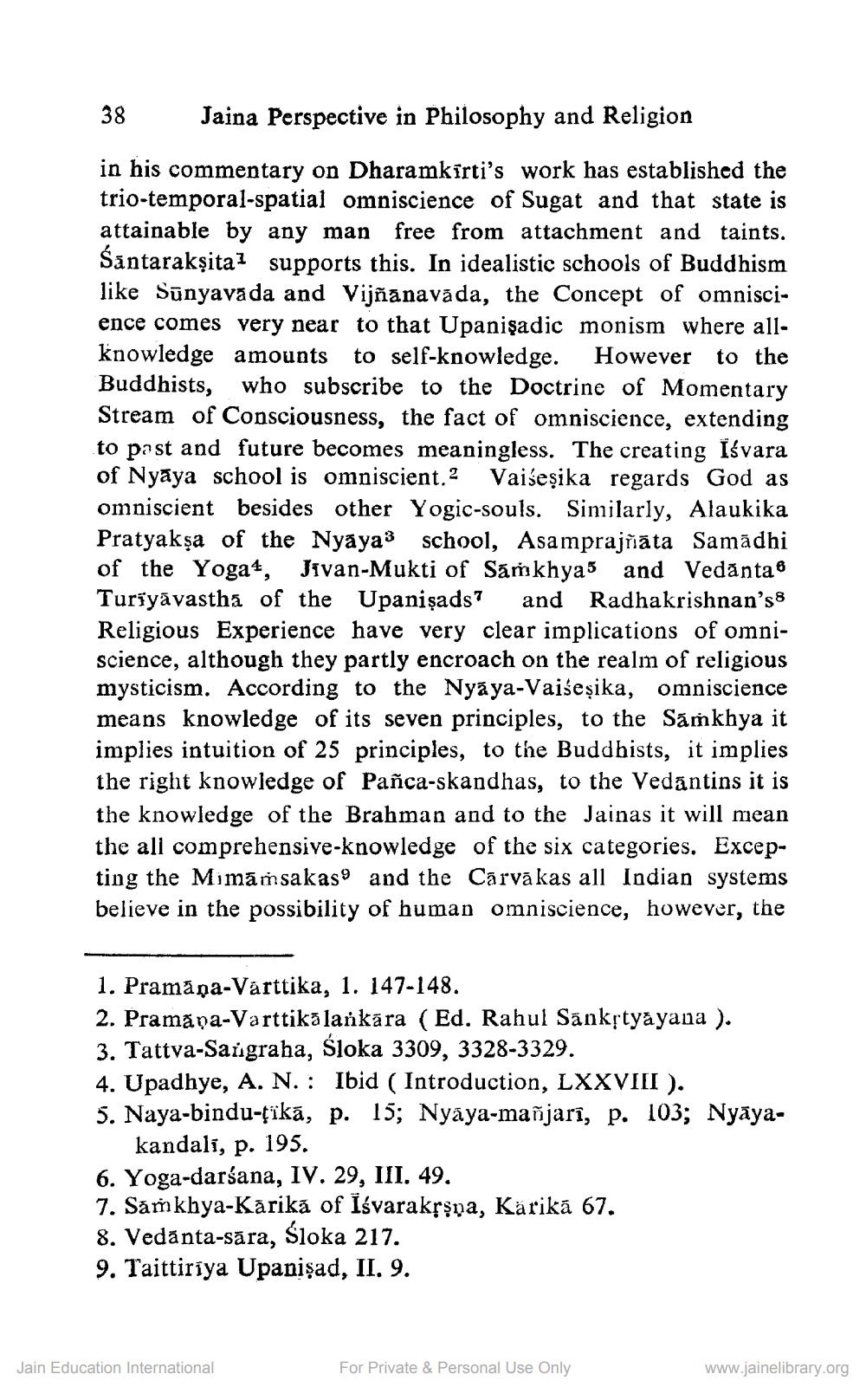________________
38
Jaina Perspective in Philosophy and Religion
in his commentary on Dharamkirti's work has established the trio-temporal-spatial omniscience of Sugat and that state is attainable by any man free from attachment and taints. Santarakṣital supports this. In idealistic schools of Buddhism like Sūnyavada and Vijñānavāda, the Concept of omniscience comes very near to that Upanişadic monism where allknowledge amounts to self-knowledge. However to the Buddhists, who subscribe to the Doctrine of Momentary Stream of Consciousness, the fact of omniscience, extending to past and future becomes meaningless. The creating Ïśvara of Nyāya school is omniscient.2 Vaiseșika regards God as omniscient besides other Yogic-souls. Similarly, Alaukika Pratyakşa of the Nyaya3 school, Asamprajñāta Samadhi of the Yoga4, Jivan-Mukti of Sáňkhya5 and Vedanta Turīyāvastha of the Upanişads7 and Radhakrishnan's8 Religious Experience have very clear implications of omniscience, although they partly encroach on the realm of religious mysticism. According to the Nyāya-Vaisesika, omniscience means knowledge of its seven principles, to the Sámkhya it implies intuition of 25 principles, to the Buddhists, it implies the right knowledge of Pañca-skandhas, to the Vedantins it is the knowledge of the Brahman and to the Jainas it will mean the all comprehensive-knowledge of the six categories. Excepting the Mimāṁsakas and the Carvākas all Indian systems believe in the possibility of human omniscience, however, the
1. Pramāna-Varttika, 1. 147-148. 2. Pramāņa-Varttikä lankára (Ed. Rahul Sănkstyayana ). 3. Tattva-Sangraha, Sloka 3309, 3328-3329. 4. Upadhye, A. N.: Ibid ( Introduction, LXXVIII ). 5. Naya-bindu-ţikā, p. 15; Nyaya-mañjarī, p. 103; Nyāya
kandali, p. 195 6. Yoga-darśana, IV. 29, III. 49. 7. Samkhya-Kārikā of Isvarakļşya, Kärikā 67. 8. Vedānta-sāra, Śloka 217. 9. Taittiriya Upanişad, II. 9.
Jain Education International
For Private & Personal Use Only
www.jainelibrary.org




